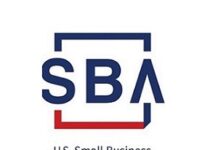
PROVIDENCE – Congressional Republicans’ tax-cutting bill could add about $5.7 million to the 30-year debt-financing plan for a proposed Pawtucket Red Sox stadium deal in Rhode Island.
The legislative proposal introduced Thursday piqued the interest of Rhode Islanders following the local stadium deal, as a provision of the bill would prohibit the issuance of tax-exempt bonds to finance professional sports stadiums.
The PawSox have proposed to build an $83 million Triple-A baseball stadium in Pawtucket using – in part – tax-exempt bonds.
Team owners have offered to pay $12 million in cash. The rest – about $71 million – would be financed by bonds. Of that total, about $38 million would be tax-exempt, according to the proposal negotiated between the state, the team and Pawtucket.
If the congressional tax bill were to pass as proposed, the PawSox stadium legislation would need to make the bonds taxable, which would add to the cost of paying them back.
So, by how much?
R.I. General Treasurer Seth Magaziner estimates issuing taxable bonds instead of tax-exempt bonds would add about $100,000 each year to the amount the state would pay, and about $90,000 for Pawtucket, although it would not increase the actual construction costs for the facility. As presented by the team, the tax revenue generated from activities at the stadium would cover all of the state’s original bond payment amounts, while the city would need extra development around the stadium to take place in order for tax revenue to cover its bond repayments.
Currently, the cost of tax-exempt bonds over a 30-year period for both the city and state together would total about $68 million. If changed to taxable bonds, the total would increase about $5.7 million.
On balance, the increase spread out over three decades isn’t enough for Magaziner to change how he feels about the project.
“We don’t see that as enough to make it unaffordable,” said Evan England, a spokesman for Magaziner.
The federal legislation still has a long way to go before anything is approved, leaving PawSox officials to take a wait-and-see approach.
“Unless anything has happened to bring it to fruition, we remain unaffected,” said Bill Wanless, PawSox spokesman.
Eli Sherman is a PBN staff writer. Email him at Sherman@PBN.com, or follow him on Twitter @Eli_Sherman.











